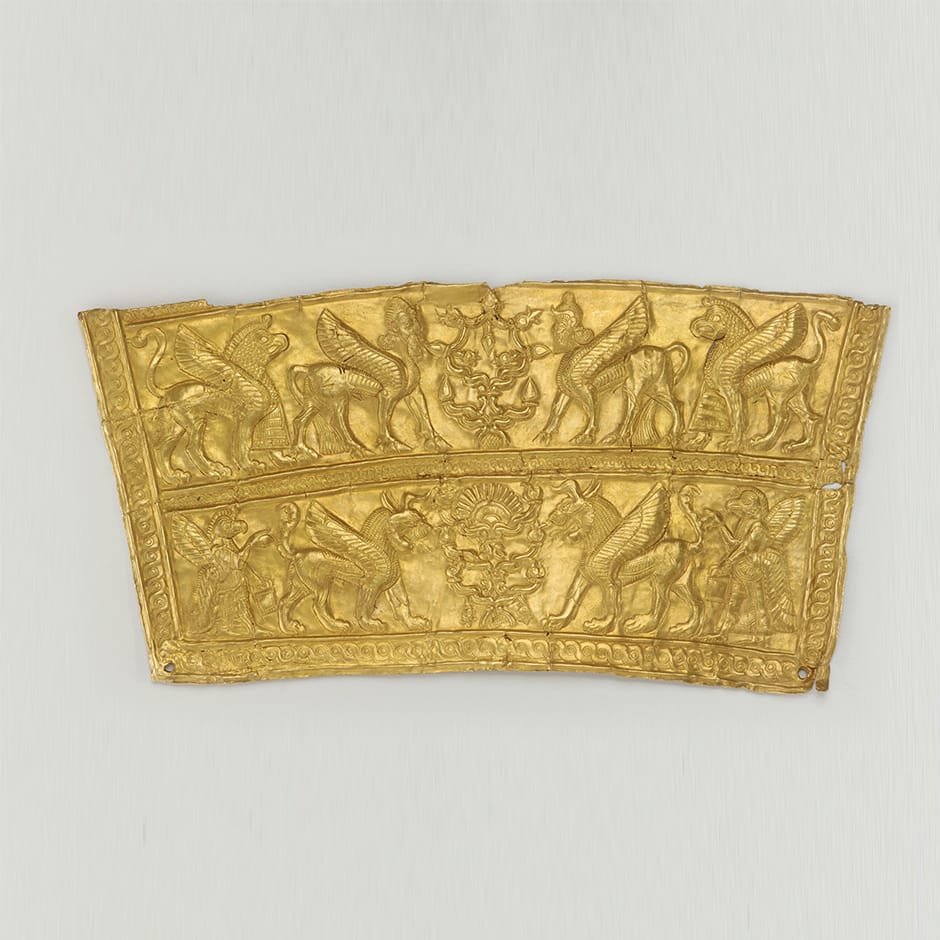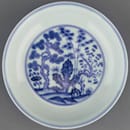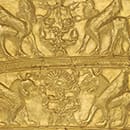
BREASTPLATE WITH SACRED TREE AND CREATURES
The top line of this breastplate shows the tree of life growing pomegranates. Beside it are two human-headed, winged bulls and two crested griffins. On the second line is a tree of life with horned griffins and a pair of winged bird-men carrying buckets and holding pine cones. In the ancient Near East, the tree of life had several meanings. It was seen as a religious symbol and was associated with life and fertility. At times, the tree of life was also associated with the kingship. This motif was a popular decorative image and often had a central role in the iconographic repertoire of the ancient Near East.
This is a fragment from a breastplate made in northwestern Iran. Made of gold sheet, the figures were created using a repoussé technique, where they were hammered into shape from underneath. Holes at the edges suggest the breastplate may have been attached to clothing and used by royal individuals. The creatures next to the sacred tree are protective figures that are probably meant to provide the wearer of this breastplate with protection and prosperity.
Object Number
S1986.496
Date
ca. 800–500 BCE, Iron Age III
Place of Origin
Northwestern Iran
Medium
Gold
Dimensions
H × W × D: 9.3 × 18.1 × 0.5 cm
(3 11/16 × 7 1/8 x 3/16 in.)
Credit line
Gift of Joseph H. Hirshhorn to the Smithsonian Institution

